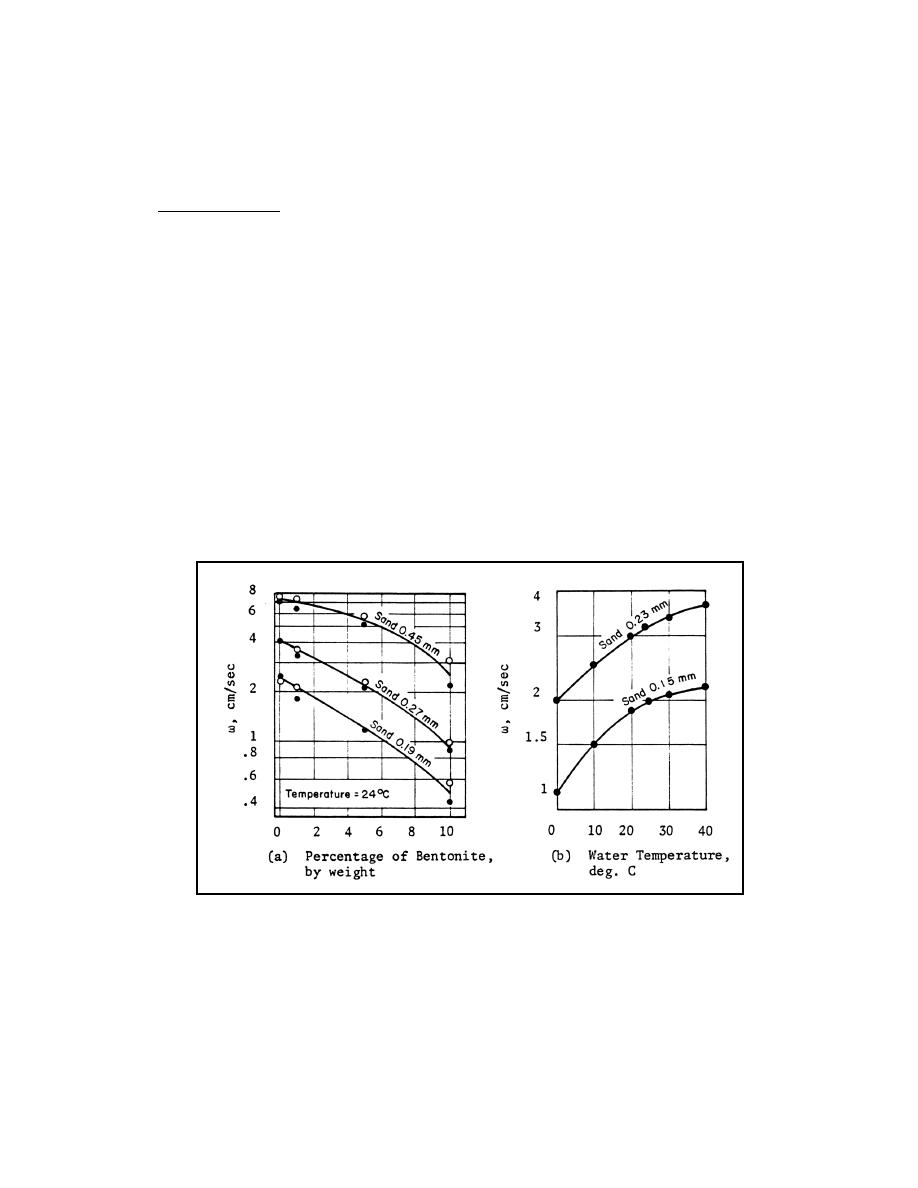
In addition to increasing the viscosity, fine sediment suspended in water increases the mass
density of the mixture (ρ) and, consequently, the specific weight (γ). The specific weight of a
sediment-water mixture is computed from the relation,
γw γs
γ=
(3.13)
γ s - Cs (γ s - γ w )
where:
Specific weight of the water [9810 N/m3 (62.4 lb per cu ft)]
γw =
Specific weight of the sediment [about 26,000 N/m3 (165.4 lb per cu ft)]
γs =
Cs =
Concentration by weight (in fraction form) of the suspended sediment
A sediment-water mixture, where Cs = 10 percent, has a specific weight (γ) of about 10,460
N/m3 (66.5 lb per cu ft). It is clear any change in γ affects the boundary shear stress and the
stream power.
Changes in the fall velocity of a particle caused by changes in the viscosity and the fluid
density resulting from the presence of suspended bentonite clay in the water are shown in
Figure 3.12a. For comparative purposes, the effect of temperature on the fall velocity of two
sands in clear water is shown in Figure 3.12b.
Figure 3.12. Variation of fall velocity of several sand mixtures with percent bentonite and
temperature (Simons and Richardson 1966).
3.4.4 Size of Bed Material
influence on the fall velocity, ω, which is a measure of the interaction of the fluid and the
3.24




 Previous Page
Previous Page
